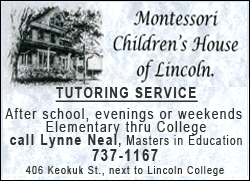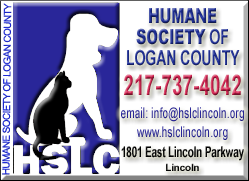 Before the jury was called into the courtroom, Judge Thomas Harris
addressed and ruled on a request from the defense. Before the jury was called into the courtroom, Judge Thomas Harris
addressed and ruled on a request from the defense.
On Tuesday the defense had asked for a directed verdict that
would take the decision of innocence or guilt out of the hands of
the jury. Harris denied that request on two occasions during the
day.
Wednesday he disclosed the defense had asked for the jury to have
a choice of charges.
Currently Cline is being charged with first-degree murder. The
jury will have to agree unanimously on the final verdict.

The defense asked that the jury be given the choice of finding
Cline guilty or innocent of child endangerment. In that charge it
would be specified that Cline had struck 2-year-old Lucas Alberts
and that he had willfully failed to seek medical treatment for the
child. To find Cline guilty or innocent, the jury would have to
weigh the validity of both statements and render the verdict.
Harris denied this request, saying the secondary charge of child
endangerment had to contain portions of the original charge of
murder. Harris said the murder charge did not include anything about
Cline willfully neglecting to have the child seen by a doctor;
therefore, the charge could not be added as an option for the jury.
Assistant State's Attorney Jonathan Wright was the first to offer
closing statements. Under the law, Wright presented, then Jay Elmore
for the defense. After the defense closed, Wright would then be
given an opportunity for a rebuttal closing.
Wright began his closing by saying: "Lucas Alberts will never go
to school, will never play Little League baseball. He will never go
to high school, never go to college, never get married and never
have children."
He recounted Lucas' physical condition prior to Aug. 22, 2009,
and noted he was a healthy, normal, happy child.
He referred to the relationship between Cline and Jody Alberts,
saying Cline knew it was a "package deal" that Lucas came with Jody.
He noted that Cline himself had stated that having a 2-year-old back
in his life had been a difficult adjustment.
Wright drew attention to the text messages between Cline and Dave
Gleason and said Cline was ‘brutally honest" in the texts to his
friend. He noted the messages were extremely critical to this case.
He reminded the jury that Dr. Channing Petrak and Dr. Scott
Denton, who had firsthand knowledge of the case, had agreed the
little boy died from "abusive head trauma." It was not a short fall,
according to Wright, but an inflicted injury. Wright also noted that
the evidence to this effect had not been refuted.

With the symptoms of blunt force trauma having been well talked
about over the week of testimony, Wright drew the jury's attention
to the fact that Lucas was sleepy, according to Cline, at a time in
the evening hours before his bedtime.
Wright targeted testimony from the defense's expert witness Dr.
Mark Shuman, saying Shuman had drawn an incorrect conclusion when he
measured the red marks on Lucas face and matched them to the rat
cage. Wright said the real injury was the pale portion between the
red lines, and those could only have been made by a hand.
Talking about the lip injury on the child, Wright said the injury
was serious, and the child would not have gotten over it in the
short amount of time Cline claims he did. He added he had doubts
that the child ate that night.
Wright offered a scenario to the jury about what happened to
Lucas on the night of Aug. 22. He said Lucas fell and hurt his lip.
He was crying, bleeding and calling for his mommy. Cline had been
pushed to the end of his patience with the child and he snapped. At
that point he grabbed or squeezed the boy's face, trying to quiet
him, and the actions escalated to the blunt force trauma.
Wright said in addition, Cline changed his story about the
accident between August 2009 and this week when he testified. He
said originally Cline had told Jody Alberts, Amber Benson, Dave
Gleason and the police that the child fell into the rat cage. This
week Cline offered precise details, recalling that he had moved the
cage into the middle of the room, it was close to a coffee table,
and he had his back to the incident so he really didn't see what
happened. Wright said Cline was implying that the blunt force trauma
may have come from a hit to the head on the coffee table.
The prosecutor said that at the time of the incident, Cline was
"flat," with no emotion; he told Jody Alberts she was overreacting
and did not offer help as Jody tried to get her son to the emergency
room.

Cline claimed Jody accused him of hurting Lucas, but Jody said
she did not. Wright contended that it was Cline's own conscience
that was accusing him. Jody was upset because Cline was not helping
her, and that is why she told him to get his things and get out.
Wright also drew from Jody's testimony to illustrate Cline's lack
of emotion and concern when he recalled she had testified Cline was
outside having a cigarette when she left to take Lucas to the
hospital.
The prosecutor concluded that when Cline began his early morning
drinking rum and Coke, it was to quell his guilty conscience for
what he had knowingly done to Lucas.
He concluded as well that Cline was purposely not acknowledging
the police at his door, but he also noted that after the events of
the morning at Jody Alberts' home, Cline went home and went to
sleep.
He wrapped up by saying that the evidence supported a guilty
verdict on charges of first-degree murder. He said Cline performed
the acts that caused the death and that he knew there was a strong
probability of death while he was doing it.
[to top of second column] |

When Elmore took over for the defense, he opened by saying: "It
is my privilege and responsibility to speak to you. The most
important thing a person can do is think, speak and act on the
behalf of another."
Elmore spent the first 15 minutes giving the jury a dissertation
on the history of the judicial system and reminding them that they
were upholding a time-honored tradition of the justice system.
He reminded them of their promises as they were interviewed as
jurors to be open-minded, give careful and complete attention to the
case, and to hold the prosecution to proof beyond a reasonable
doubt.
He said speculation, possibility, probability and likelihood were
words that have no place in this verdict. He said, "You cannot have
a single doubt in your heart (to find guilty)," then added, "to vote
with us this is not true."
Addressing the case at hand, Elmore said Wright had said Cline
had snapped. Elmore asked why: "The rat cage? The blood, the
carpet?"
He showed the jury pictures of Cline's less-than-tidy apartment
and sarcastically said, "Ty snapped because he was neat, and he was
angry about the mess Lucas made."
He then added, "That would cause this good man to throw it all
away."

Elmore said the prosecution's alleged motive was ridiculous
because Cline loved Jody Alberts and he loved Lucas.
He told a story of a woman using a flashlight and binoculars to
look at cracks in the ceiling and intimated that the jury needed to
look at the cracks in the prosecution.
He said Cline had not gone to the hospital on Aug. 23 because he
was not welcome there. Elmore beseeched the jury: "Don't let them
bamboozle you. Not going means nothing."
Elmore claimed the prosecution was drawing attention to the
expletives in Cline's text messages to incite the jury, saying it
was "to fuel his case with emotion and bias."
He also said Wright was using sympathy, prejudice and bias, and
he was "fanning the flames."
He asked rhetorically if anywhere in the confidential text
messages to his best friend Gleason, Cline had said he was angry,
frustrated or had struck Lucas Alberts. Then Elmore answered the
question with a resounding "No!"
He once again sarcastically said that Cline had to be a very
intelligent, in fact brilliant man to have masterminded a plant
using the text messages.
He also refuted Wright, saying that Cline had always held to the
same story with everyone.
Later in the argument, Elmore touched on Shuman being a hired gun
and turned it around, saying that all the experts involved in the
prosecution's case had also been paid.
He worked to discredit Dr. Denton, claiming he was confused in
the facts, perhaps because he's dealt with too many trials.

He turned his discussions to various research papers that had
been introduced, saying they supported the theory that Lucas could
have fallen and sustained the life-taking injuries.
He noted that the "constellation of injuries between accidental
and intentional blunt force trauma are identical."
Elmore said there was no doubt that blunt force trauma had caused
Lucas' death, but the real question was when, where, how, and was it
accidental.
As he broached the next subject, the visitors in the gallery of
the courtroom gasped, seemingly in shock, and many members of the
Alberts family could be heard weeping.
Elmore drew attention to the fact that Lucas had spent a day with
his 80-year-old great- grandmother. He wondered if the child got
hurt then. He speculated that perhaps he fell -- maybe grandmother
was in the bathroom, on the phone, something, and wasn't watching.
He also noted it was "Jody's rules" that when the
great-grandmother watched Lucas, an uncle had to check in on them
during the day. He wondered why that was.
Referring to her by name, he then wondered why no one questioned
the lady, searched her home or did any of the things they have done
to Cline.
He moved on to Lucas' mother. "Jody is the only one who said
Lucas hit his head. What does that mean? I don't know what that
means."
He referred to the state's case as a "shambles" and said, "There
is no evidence Ty caused the injury to the back of the head: none,
zero, zippo!"
Elmore's closing was a plea to the jury. He said: "Now is the
time to put aside sympathy, bias and prejudice. Now is the time to
do what is right. Now is the time to find him not guilty, because he
is in fact not guilty".
After Elmore finished, the jury was offered a 15-minute break
before returning to hear Wright's rebuttal closing.
[LDN]

 |